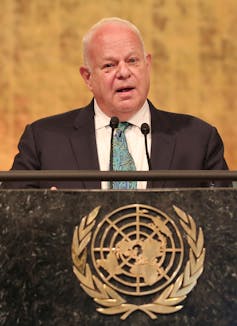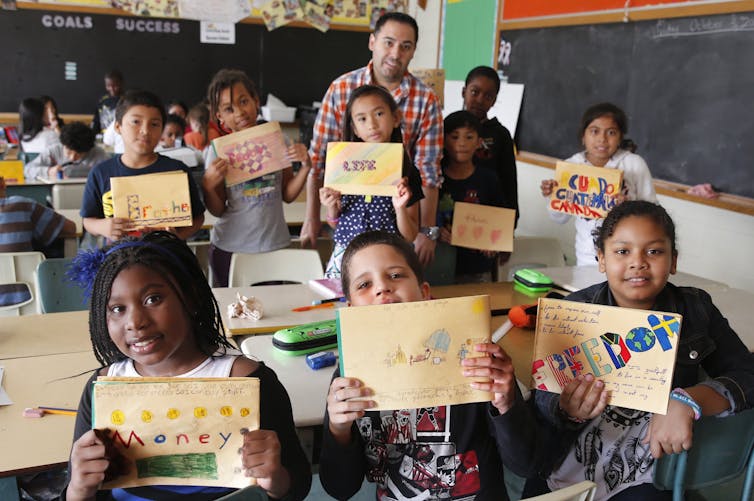Information for Students Registering for CFS-Prefix Classes
Information for Students Registering for CFS-Prefix Classes
Beginning August 1, 2024, the Department of Child and Family Studies will become the Department of Counseling, Human Development, and Family Science (CHDFS).
- The current undergraduate and graduate programs and courses will either be moved to an existing department (TPTE – IEC Interdisciplinary Early Childhood) or the newly-formed Counseling, Human Development, and Family Science (CHDFS) department.
- In preparation for these program changes, all CFS-prefix classes will be discontinued, beginning in Fall 2024.
- However, current students’ academic plans and degree plans WILL be honored, and the actual content of our courses will remain the same.
- For Fall 2024, students should register for courses with either the HDFS-prefix or the IEC-prefix.
- Here are two tables that give more details about the course prefix changes.
| Old Prefix
& Number | Course Title | New Prefix
& Number |
| CFS 210 | Human Development | HDFS 210 |
| CFS 211 | Development in Infancy and Childhood | HDFS 211 |
| CFS 213 | Development in Adolescence and Adulthood | HDFS 213 |
| CFS 220 | Marriage and Family: Roles and Relationships | HDFS 220 |
| CFS 240 | Human Sexuality | HDFS 240 |
| CFS 320 | Family Interaction | HDFS 320 |
| CFS 345 | Life Design | HDFS 345 |
| CFS 360 | Family Stress | HDFS 360 |
| CFS 385 | Diversity among Children and Families | HDFS 385 |
| CFS 395 | Introduction to Research Methods and Statistics | HDFS 395 |
| CFS 405 | Development of Professional Skills | HDFS 405 |
| CFS 440 | Family Life and Parent Education | HDFS 440 |
| CFS 460 | Directed Study in (was CFS) (now HDFS) | HDFS 460 |
| CFS 480 | Practicum: Community Placement | HDFS 480 |
| CFS 481 | Research in (was CFS) (now HDFS) | HDFS 481 |
| CFS 485 | Special Topics in (was CFS) (now HDFS) | HDFS 485 |
| CFS 490 | Practicum: Research | HDFS 490 |
| CFS 497 | Honors: (was CFS) (now HDFS) | HDFS 497 |
| Old Prefix
& Number | Course Title | New Prefix
& Number |
| CFS 210 | Human Development | HDFS 210 |
| CFS 211 | Development in Infancy and Childhood | HDFS 211 |
| CFS 213 | Development in Adolescence and Adulthood | HDFS 213 |
| CFS 220 | Marriage and Family: Roles and Relationships | HDFS 220 |
| CFS 240 | Human Sexuality | HDFS 240 |
| CFS 320 | Family Interaction | HDFS 320 |
| CFS 345 | Life Design | HDFS 345 |
| CFS 360 | Family Stress | HDFS 360 |
| CFS 385 | Diversity among Children and Families | HDFS 385 |
| CFS 395 | Introduction to Research Methods and Statistics | HDFS 395 |
| CFS 405 | Development of Professional Skills | HDFS 405 |
| CFS 440 | Family Life and Parent Education | HDFS 440 |
| CFS 460 | Directed Study in (was CFS) (now HDFS) | HDFS 460 |
| CFS 480 | Practicum: Community Placement | HDFS 480 |
| CFS 481 | Research in (was CFS) (now HDFS) | HDFS 481 |
| CFS 485 | Special Topics in (was CFS) (now HDFS) | HDFS 485 |
| CFS 490 | Practicum: Research | HDFS 490 |
| CFS 497 | Honors: (was CFS) (now HDFS) | HDFS 497 |





